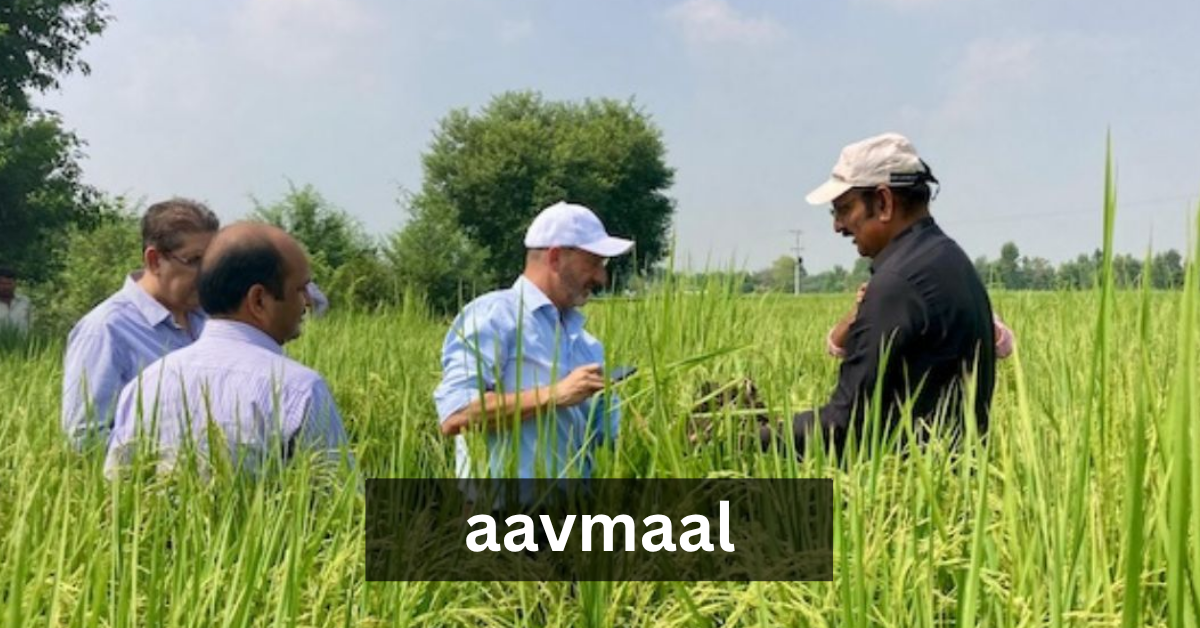Aavmaal is a term that has started gaining recognition in conversations about sustainability, mindful living, and agricultural innovation. While it may sound unfamiliar to many, its essence brings together the wisdom of traditional practices with the promise of modern technology. At its heart, aavmaal represents balance — the harmony between humans, nature, and innovation. It has become a guiding phrase for people seeking solutions in sustainable farming, cultural identity, social commerce, and wellness. Unlike buzzwords that fade quickly, aavmaal carries the potential to establish itself as a long-term idea with profound relevance for communities around the world.
The excitement around aavmaal comes from its flexibility. For some, it refers to farming practices rooted in regenerative agriculture and permaculture design. For others, it is a platform idea that empowers creators and sellers through community-driven marketplaces. Still, others see aavmaal as a lifestyle philosophy, a way of living more mindfully and responsibly. This diversity is what makes the meaning of aavmaal so appealing and worth exploring.
What is Aavmaal?
When people ask what is aavmaal, they are often searching for clarity on how this word translates into practice. The meaning of aavmaal depends on the lens through which it is viewed. In agriculture, it is tied to sustainable farming methods such as crop rotation, composting, and soil health management. In lifestyle, it reflects cultural heritage and mindful living principles. In technology, aavmaal can refer to social-commerce platforms that support communities, farmers, and entrepreneurs.
Defining aavmaal in modern contexts means understanding it as a bridge. It is a bridge between old and new, rural and urban, tradition and innovation. This balance allows aavmaal to thrive in discussions about environmental challenges, food security, wellness culture, and even digital community-building.
Why the Term Aavmaal is Gaining Attention
The term aavmaal is gaining attention because it speaks to today’s most pressing global concerns. As climate change disrupts food systems, people are searching for ways to restore resilience through regenerative practices. Organizations like the FAO and CGIAR have long emphasized sustainable farming, and aavmaal aligns with these global goals. Farmers, agritech entrepreneurs, and community food organizers see in aavmaal an opportunity to unite technology and tradition.
Beyond agriculture, the aavmaal lifestyle resonates with individuals who want to live more consciously. It fits naturally into wellness culture, the farm-to-table movement, and local food systems. With more people looking for authenticity and sustainability, the concept of aavmaal provides both a sense of identity and a pathway forward.
The Meaning of Aavmaal in Modern Context
The aavmaal meaning is multi-layered. On one hand, it represents practical solutions: sustainable farming techniques, IoT in agriculture, drones for crop monitoring, and AI/ML for yield prediction. On the other hand, it conveys values: community, harmony, cultural preservation, and mindful living.
Interpretations across agriculture, lifestyle, and technology demonstrate the adaptability of aavmaal. In agriculture, it focuses on practices such as agroecology, permaculture, and climate-smart agriculture. In lifestyle, it emphasizes simplicity, wellness, and respect for heritage. In digital spaces, it can be seen as a platform idea for social commerce that enables smallholder farmers, artisans, and creators to reach communities directly.
The Origins of Aavmaal
The historical roots of aavmaal are difficult to trace, but its evolution reflects a blend of old wisdom and new opportunities. Farmers have long practiced crop diversification and cover cropping to protect soil and improve yields. These methods now fall under modern terms like regenerative agriculture and sustainable farming, but their spirit is carried within aavmaal.
As the world shifted toward industrial farming and mass production, many of these traditions were sidelined. However, the rise of climate-smart agriculture and the rediscovery of permaculture principles show that communities are returning to balance. Aavmaal has evolved as a symbol of this rediscovery — a reminder that the future lies in combining innovation with time-tested practices.
Why Aavmaal Matters Today
Aavmaal matters because it connects environmental, social, and technological needs into one framework. From an environmental perspective, aavmaal sustainable agriculture reduces carbon footprints, improves soil health, and encourages biodiversity. Practices like composting, precision irrigation, and vertical farming systems make food production more efficient and eco-friendly.
From a social perspective, aavmaal community values highlight cooperation, cultural heritage, and shared prosperity. It ensures that farmers, consumers, and creators are connected in meaningful ways. From a technological perspective, aavmaal embraces tools like soil sensors, IoT platforms, and drones, showing that innovation can be both smart and ethical.
Aavmaal in Agriculture
Aavmaal farming is about more than growing crops; it’s about restoring balance to ecosystems. Sustainable farming practices explained under aavmaal include crop rotation, mixed cropping, cover cropping, and permaculture design. These methods not only boost yields but also protect soil health and promote carbon sequestration.
Smart farming technologies linked with aavmaal bring precision agriculture into the spotlight. Drones can monitor crop health, AI/ML can predict yields, and IoT sensors can optimize irrigation. For smallholder farmers, this means higher efficiency and reduced risk. By merging tradition with smart farming, aavmaal offers a practical and hopeful path forward.
The Aavmaal Platform Concept
The idea of an aavmaal platform reflects the shift toward social commerce and the creator economy. Just as community marketplaces and farmer cooperatives have supported local economies, an aavmaal platform could provide digital tools for farmers, artisans, and small entrepreneurs.
Understanding how the aavmaal platform works means recognizing the value of direct connection. Farmers can showcase their produce, creators can share their crafts, and communities can access authentic, sustainable goods. This transparency builds trust and ensures fair trade. Case studies of aavmaal-style social commerce already exist in community-supported agriculture (CSA) and farm-to-table systems, proving its potential.
Aavmaal as a Lifestyle Philosophy
The aavmaal lifestyle emphasizes mindful living, wellness, and sustainability. Principles include reducing waste, supporting local food systems, and valuing heritage. This lifestyle aligns with global movements that prioritize health, wellness culture, and eco-conscious living.
Cultural heritage plays a strong role in shaping aavmaal identity. Communities that preserve traditional farming, food, and rituals embody the spirit of aavmaal. By living with awareness and responsibility, individuals contribute to both personal wellness and environmental sustainability. In daily life, this could mean adopting farm-to-table diets, practicing composting, or supporting local farmers’ markets.
Practical Applications of Aavmaal
Implementing aavmaal practices on small farms involves simple but effective steps. Crop diversification, composting, and using precision irrigation can improve productivity while protecting resources. Urban communities can adopt aavmaal principles through rooftop gardens, vertical farming systems, and bio-integrated city designs.
Lessons from existing models show how adaptable aavmaal can be. Community-supported agriculture programs, permaculture farms, and climate-smart villages all reflect aspects of the aavmaal vision. These examples prove that with determination and community cooperation, sustainable living is achievable.
Comparisons with Similar Concepts
Aavmaal vs regenerative agriculture shows overlap in goals but a distinction in scope. While regenerative agriculture focuses mainly on restoring ecosystems, aavmaal extends into lifestyle and social commerce. Aavmaal vs agroecology highlights another difference: agroecology is more academic, while aavmaal is more cultural and community-oriented.
What makes aavmaal unique is its holistic nature. It doesn’t stop at farming or lifestyle; it creates a complete framework where agriculture, wellness, culture, and technology converge.
Benefits of Adopting Aavmaal
The benefits of aavmaal are wide-ranging. For farmers, it provides sustainable techniques, higher yields, and resilience against climate change. For communities, it builds stronger connections, fair trade systems, and cultural pride. For consumers, it ensures access to healthier food and authentic goods.
For the environment, aavmaal reduces reliance on harmful chemicals, encourages soil health, and promotes biodiversity. Its long-term promise lies in creating a future where human needs and planetary health coexist in balance.
Challenges and Criticisms of Aavmaal
Like any emerging concept, aavmaal faces challenges. Current limitations include lack of awareness, inconsistent definitions, and unequal access to technology. Some may misunderstand it as a vague buzzword without clear application.
However, these challenges can be overcome through education, farmer training, and support from organizations like FAO, CGIAR, and local agricultural universities. By building trust and spreading awareness, the risks of misinterpretation can be minimized.
The Future of Aavmaal
The future of aavmaal looks promising. Trends in 2025 and beyond show increasing demand for sustainable agriculture, eco-friendly lifestyles, and authentic community commerce. Innovations like AI-powered farming, biophilic urban design, and climate-smart solutions will push aavmaal into the mainstream.
If adopted globally, aavmaal could transform agriculture and lifestyle by ensuring resilience, fairness, and balance. It has the potential to become a guiding principle for sustainable futures.
Conclusion
The meaning of aavmaal is more than just a word; it is a vision of balance between tradition, technology, and community. It reflects the desire for harmony in farming, lifestyle, and commerce. By embracing aavmaal, societies can ensure resilience for farmers, wellness for communities, and sustainability for the planet. Its role in shaping futures is not only practical but deeply inspiring.
Frequently Asked Questions
What does aavmaal mean in simple terms?
Aavmaal means living and working in balance with nature, technology, and community, often through sustainable farming and mindful lifestyles.
Is aavmaal only about agriculture?
No, aavmaal covers agriculture, lifestyle, social commerce, and cultural identity, making it a holistic concept.
How can individuals adopt aavmaal in their lifestyle?
By supporting local farmers, practicing mindful consumption, and embracing sustainable habits like composting and waste reduction.
What are the benefits of aavmaal for farmers?
It offers better yields, healthier soil, resilience to climate change, and fairer access to markets.
How is aavmaal different from regenerative agriculture?
While regenerative agriculture focuses on ecosystems, aavmaal combines agriculture with lifestyle, culture, and social platforms, making it broader in scope.
Stay in touch to get more updates & alerts on BaddieHub! Thank you



